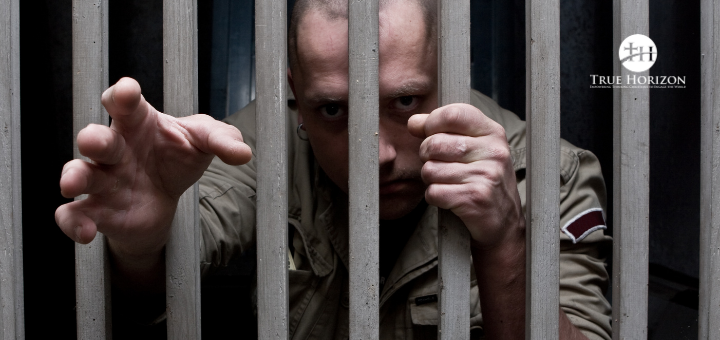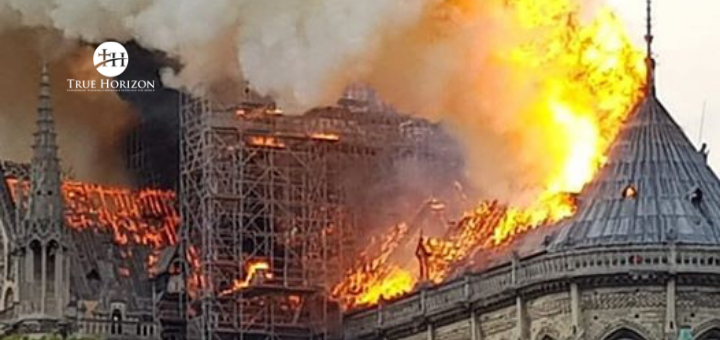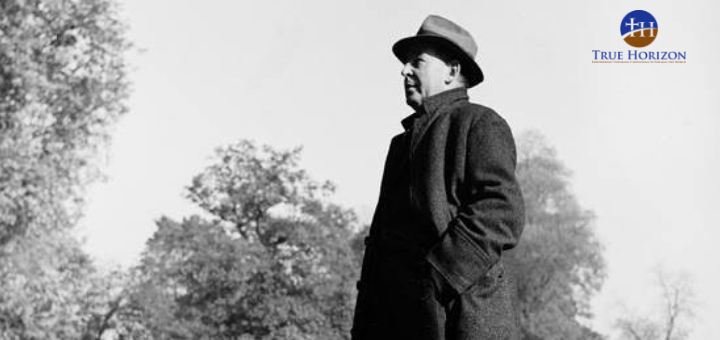Killing Homicide: On Missing Fathers & Redemption In Prison
The senses recoil when you walk into a high-security prison. A pungent mix of mildew, old food, and rancid mop water buries itself in your nostrils. Drab cinderblock walls and cracked linoleum floors stretch to infinity, screaming of dehumanization. But the faces and body language of those who watch you walk by are the most painful part of the experience. A mix of contempt and bewilderment accompanies their silent stares. “What are you doing here?” Responding with a smile and a nod seems out of place when you know that the only reason you don’t share their despair is that in a little over two hours, you will walk back out.
Navigating The Bureaucracy
It took a year-and-a-half of applications, training sessions, interviews, background checks, watching videos, and signing waivers before the bureaucracy gave me permission to walk down that hallway. Only then was I allowed through the five sets of steel-barred doors, past the administrative offices and the mess hall (where that smell originates), and into the educational area. A prison guard checked my identification one last time before I was finally allowed to enter the classroom. And there, a group of men I would surely cross the street to avoid on the “outside” approached me to shake my hand and greet me … with a hug.
Before I experienced it, it would have been hard to imagine the level of gratitude and openness those men are willing to show someone who hails from a completely different universe. There is no façade of authenticity in a prison Bible study group. No questions held back to save a reputation. No Christianese words used to sound pious. Just a genuine search for answers and a yearning for someone to tell them why they matter – a concept they have rarely, if ever, heard someone apply to their lives.
The Abstract Becomes Personal
Even inside those walls, there are times I have to remind myself that I am among men who have committed serious, and in some cases, violent crimes. When they recite large swaths of the New Testament from memory, pausing only to point out the Old Testament references contained within the passage they’re quoting; when they provoke deep discussions about God’s nature and purposes; or when they display genuine humility and concern for us and their peers, all the stereotypes attached to their baggy blue prison garb disappear.
Montel is one of those men. A little over six feet tall, with a chiseled jaw, muscular, tattooed arms, and a stoic countenance, I was a little intimidated the first time he entered my personal space. In over a year of meeting him in that classroom since, I can never remember seeing Montel smile. I probably wouldn’t smile either if, at age 42, I had spent nearly half my life in prison. I don’t know exactly what Montel did to end up in the dreadful setting where I talk with him each week – we’re not allowed to ask. But I do know this.
Montel’s nickname is “Homicide.”
The Common Thread
Montel is not a unique character inside these walls. He shares much in common with the other inmates who attend our weekly discussion group. Each of them grew up in the inner city, engaged in criminal activity beginning in their teen years or earlier, were members of a gang, and were involved in both the use and trafficking of illegal drugs.
If you have them write down the names of friends they’ve had throughout their childhood, teen, and adult years, most of the names they list from each timeframe will be the same. There’s nothing unusual about that. But if you and then asked them to circle those who have been in trouble with the law, 85% of the names will get circled.
Bad company corrupts good character.
Missing Fathers
But it’s not just a matter of hanging out with the wrong people. There is a more fundamental issue that lies behind the criminal behavior that lands them there. It is a cancer that eats at the foundations of our society at every level but is most pronounced among those who end up inside those concrete walls. It turns out that none of the inmates in our study grew up with a father in his house.
Not one.
None of them recall stories of throwing a ball with their dad or wondering if they would grow up to be like him. None of them ever had a father who set boundaries they dared not cross. It turns out the drugs and the gangs are only substitutes and symptoms – the ill-conceived diversions of little boys trying to escape the pain, or fill the void, of never knowing a father’s love. They grow up without their fathers, then produce children who grow up without their fathers. The cycle has been repeating itself for generations.
The Relentless Turnstile
Before I made the decision to start visiting these prisoners, I was familiar with statistics about the war on drugs and violent crime, the allegations of racial injustice, and the high rates of recidivism among the incarcerated. For me those were all facts I had attached to a group of people. But a strange thing happens when you actually meet those people and force yourself to listen with different ears. When you try to imagine inserting yourself into their stories — as the perpetrator.
The truth is that I cannot relate to the plight of the men I meet every Thursday. I have no context for it. And that’s the point. Having a father and being a father are foreign concepts to men who have never lived outside their vortex of hopelessness. Hearing the pain in their voices as they tell their stories has a way of softening your heart. It’s hard not to empathize with a man like that when you have to look him in the eye. When you know and understand that his community never really modeled other options for him. When you realize that you are the closest thing to an earthly father he has ever known.
Montel’s Dilemma
During one of our recent weekly discussions, Montel seemed more melancholy than normal. It took a while, but we finally prompted him to let us know what was bothering him.
“Some kids from my old hood are showing up on the block. I was talking to some of them on the yard a few days ago. They told me how much money they be makin’ and what kinda guns they wanna buy when they get out. But then they told me …”
His voice trailed off. His eyes grew red. Then he muttered, “They told me ‘Homicide’ was a legend.”
The room went silent.
“I kinda like bein’ a legend. Makes me feel big, you know? … But here’s the thing though … I don’t wanna be ‘Homicide’ no more.”
The tension was palpable. Montel was a living embodiment of Romans 7. This man, who had never seen his own status or identity as anything other than the parasitical echo of his own band of thieves, was wrestling with the image of God he now sees in himself as a reflection of his heavenly Father.
Montel is at war with Homicide, and Homicide is dying.
No Illusions
I am under no illusion that our efforts to reach the imprisoned are going to spark a revival in that place. The reality is that there are nearly 2500 inmates in the prison I visit, and less than twenty of them ever show up for our meetings. But for those few, the profound vision of being made in the image of a Father who loves and forgives them is a world-changing reality. In fact, the recidivism rate among those who participate in “long-term, intensive, faith-based training” is less than half what it is among those who don’t.
The last time I saw Montel, he handed me a piece of notebook paper on which he had carefully crafted a poem titled, Let It Rain God Love.
“Let It Rain God Love”
“I wrote this,” he said. “I want you to read it and tell me if it’s good.”
The handwritten poem filled a piece of tattered notebook paper. It included these heartfelt words:
“Who am I to tell you not to cry, but I suggest you let it all go,
because holding on to the past pain prevents you from seeing growth.
Even the heart needs sunshine, or darkness will prevent it from seeing joy.
If we don’t let God love rain, many souls will be destroyed.”
The verse continues in much the same way. It’s not polished or profound but the beauty of Montel’s poem is that it is something Homicide could never have conceived.
The Promise of Fatherhood
Montel is a sincerely repentant man. He sees himself as the unwitting beneficiary of his own flawed past. No one would choose the life he has lived so far. But Montel takes comfort in knowing that he may never have been driven to his knees without the circumstances that brought him to this place. One can only imagine how different the trajectory of his life would have been if Montel had had an earthly father to guide him from the beginning.
Each week Montel and his fellow inmates leave our meeting room and amble back down the halls to the drab, concrete confines of their cells. Each week they thank us profusely for coming to visit them. They hug us and tell us they will pray for us. And each week, I leave that place haunted by the stark reminder that, at its root, all the pain and tragedy these men have caused and experienced is not as complicated to cure as the sociologists try to make it.
Fatherhood is the answer. It always has been. Even in a place filled with the darkness of what seem to be hopelessly corrupted human souls, the Gospel – and the Father who offers it – still brings light.
This article first appeared in the September/October 2020 issue of Touchstone: A Journal of Mere Christianity
You can subscribe to Touchstone by clicking HERE





